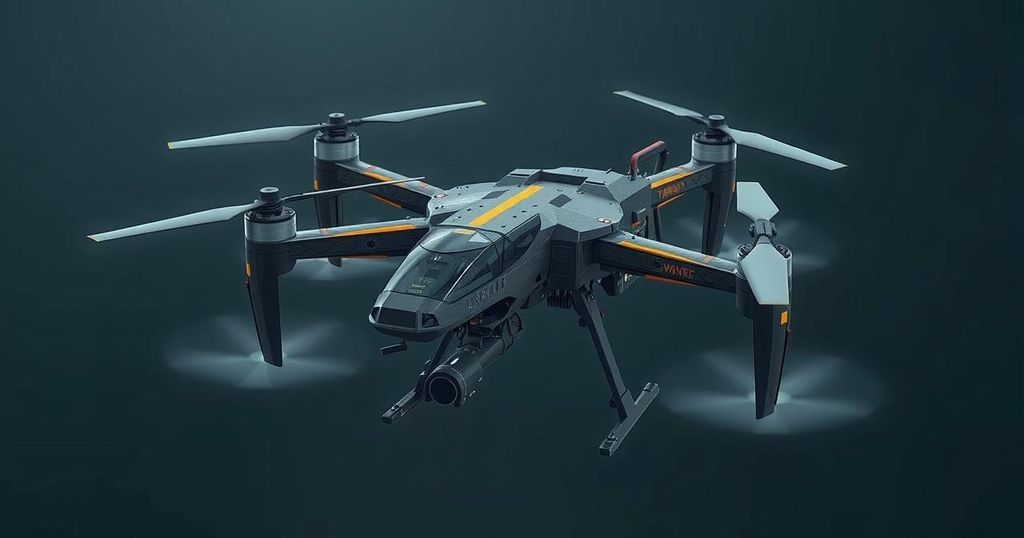Introducing the Combat Climate Change (C-3) Drone: A New Frontier in Environmental Monitoring
A new initiative has been launched to develop the Combat Climate Change (C-3) drone, a collaborative project involving Saab, EAFIT University, and KTH Royal Institute of Technology. This drone aims to monitor environmental conditions and gather data on greenhouse gas concentrations and ecosystem health, thereby facilitating climate research. The collected data will be integrated into advanced predictive models to deepen our understanding of climate systems.
Drones have emerged as transformative tools in a multitude of fields, ranging from entertainment to emergency response and military applications. However, their potential in combating climate change remains largely untapped. Currently, there are very few drones dedicated to monitoring and researching climate conditions, despite their capability to gather critical environmental data. In an intriguing collaborative initiative between organizations in Sweden and Colombia, a project named the Combat Climate Change (C-3) drone has been developed by Saab, EAFIT University, and KTH Royal Institute of Technology. Rather than a tool for direct intervention, the C-3 drone is designed to observe climate conditions, thereby facilitating climate research. Although specific operational details of the C-3 drone remain undisclosed, it is reported to be equipped with advanced, unspecified sensors that will be capable of measuring greenhouse gas concentrations, including carbon dioxide and methane, as well as detecting various aerosols in the atmosphere. Furthermore, the drone is expected to monitor changes in vegetation and soil conditions. The C-3 drone’s applications extend to assessing the health of vital ecosystems such as the Amazon rainforest, and its utility may also include evaluating agricultural land conditions. The data harvested by the drone, complemented by terrestrial imagery it will capture, is intended to enhance the information provided by satellites. This data will feed into sophisticated mathematical and AI-based predictive models, providing crucial insights into our complex global climate system. While the project’s timeline for its first flight has not been disclosed, it represents a promising intersection of technology and environmental science to tackle one of the most pressing issues facing humanity today.
The use of drones has revolutionized various sectors, providing innovative solutions and gathering data efficiently in environments that might be difficult for humans to access. As climate change presents a significant threat to global ecosystems, the role of technology in climate research is becoming increasingly vital. Recent advancements in drone technology enable specialized applications such as environmental monitoring, yet their potential in contributing to climate change research has often been overlooked. The collaboration between Swedish and Colombian entities signifies a rare effort to leverage these technologies for the benefit of climate science, showcasing an important step towards addressing climate challenges.
The Combat Climate Change (C-3) drone initiative illustrates a significant shift in how technology can be harnessed to combat climate change. Although it does not directly engage in fighting climate change, its capacity to gather comprehensive environmental data is invaluable for climate research. By filling the gaps in climate data collection alongside satellite information, the C-3 drone has the potential to enhance our understanding and management of climate systems, thereby contributing immensely to research efforts aimed at mitigating climate change impacts.
Original Source: www.autoevolution.com




Post Comment